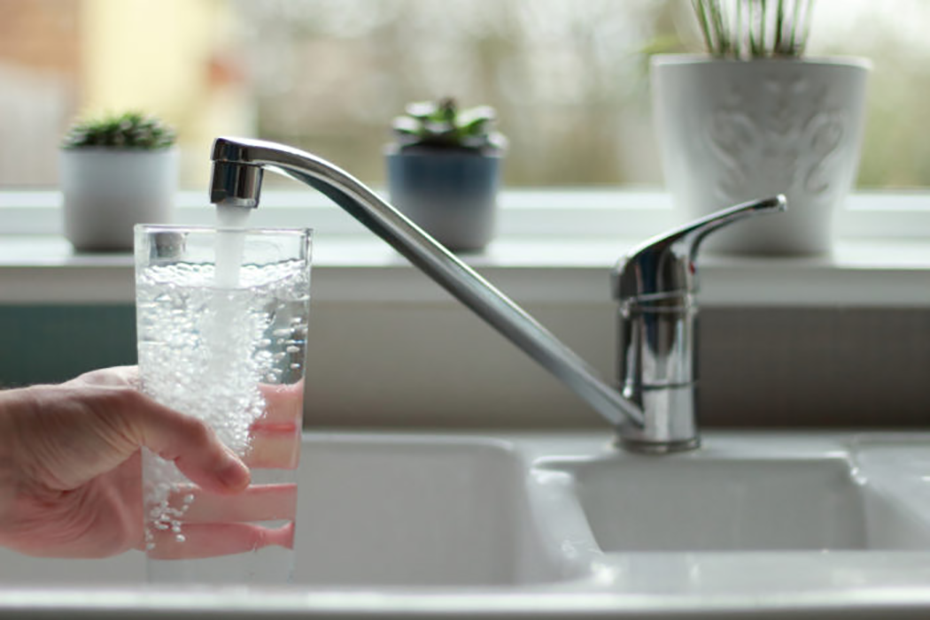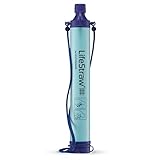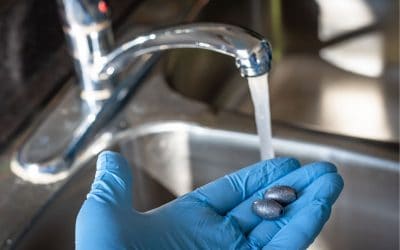Detroit, the largest city in the state of Michigan, has a long history of water issues. The city’s water supply has been plagued by lead contamination, high levels of chlorine, and other contaminants. This has led many residents to question the safety of the tap water in Detroit. In this article we take a closer look at the quality of the tap water in Detroit and explore whether or not it is safe to drink.
Contents
Where does Detroit Get It’s Tap Water From?
The tap water for Metro Detroit is sourced from Lake Huron and the Detroit River. The water is treated at the Water Treatment Plant in Detroit before it is distributed to the residents of the Metro Detroit area. The plant is operated by the Great Lakes Water Authority (GLWA) which is a regional water authority serving 126 communities in Southeast Michigan.
Detroit Tap Water Problems
Lead Contamination
One of the major concerns with the tap water in Detroit is lead contamination. Lead is a toxic metal that can have serious health effects, particularly for young children and pregnant women. In recent years, the Detroit City Council has struggled with high levels of lead in the tap water, with some areas testing at levels that exceed federal guidelines. This has led the Detroit City Council to implement a number of measures to address the issue, including replacing lead service lines and increasing water testing.
Chlorine Levels
Another issue with the tap water in Detroit is the high levels of chlorine. Chlorine is added to the water supply to kill bacteria and other harmful organisms, but at high levels, it can have negative effects on health. Some residents have reported experiencing skin irritation, dry hair, and other symptoms after consuming the tap water. The Detroit City Council has been working to reduce chlorine levels in the water, but it remains a concern for some residents.
Other Contaminants
In addition to lead and chlorine, the tap water in Detroit has also been found to contain other contaminants, such as bacteria and microorganisms. While these contaminants are not as harmful as lead, they can still cause health problems. The Detroit City Council performs regular water testing and filtration to remove such contaminants.
Can I drink tap water in Detroit?
While the tap water in Detroit has had its share of problems, the city is working to address these issues and improve the quality of the water. The Detroit City Council’s water department has implemented a number of measures to reduce lead and chlorine levels, and is working to address other contaminants. To combat this issue, the Detroit Water and Sewerage Department adds a corrosion inhibitor to its water supply. So, it is important for residents to stay informed about the quality of the tap water in their area and to take steps to protect their health.
### Recent Concerns About Detroit, MI Tap Water Quality
In recent months, several concerns have emerged regarding the tap water quality in Detroit, MI. Residents have reported issues of contamination, prompting investigations and actions by local authorities. A primary concern is the presence of elevated lead levels, particularly in older neighborhoods with aging infrastructure. This issue has been exacerbated by the corrosion of lead pipes, which leach contaminants into the water supply. Additionally, there have been reports of bacterial contamination in certain areas, raising health concerns among residents.
The affected areas include parts of Northwest Detroit and some sections of the Eastside, where testing has revealed higher-than-acceptable levels of contaminants. In response, the Detroit Water and Sewerage Department (DWSD) has initiated a citywide campaign to replace lead service lines and improve testing protocols. Furthermore, the Michigan Department of Environment, Great Lakes, and Energy (EGLE) has increased monitoring and provided resources for water testing to ensure public safety.
Local authorities have also advised residents to use water filters certified to remove lead and to flush their taps regularly to reduce exposure. Ongoing efforts to address these water quality issues include community meetings and educational programs to keep the public informed about safety measures and progress.
Detroit water quality concerns elevated lead levels reported
https://www.detroitnews.com/story/news/local/detroit-city/2023/09/15/detroit-water-quality-concerns-elevated-lead-levels-reported/70811240007/
Bacterial contamination prompts Detroit water advisory
https://www.freep.com/story/news/local/michigan/detroit/2023/08/23/detroit-water-advisory-bacterial-contamination/70689300007/
Detroit ramps up lead pipe replacement amid water quality concerns
https://www.bridgedetroit.com/detroit-ramps-up-lead-pipe-replacement-amid-water-quality-concerns/
Are water filters a good idea in Detroit?
One of the best ways for residents to ensure the safety of Detroit tap water is to install a water filter in their home. Water filters can remove a wide range of contaminants, including lead, chlorine, and bacteria, making the water safer to drink.
There are a variety of water filters available on the market, including pitcher filters, faucet-mounted filters, and whole-house filters. You should also regularly replace the filters to ensure they are still effectively removing contaminants. With a professional Detroit water filter installation, residents can be more confident in their tap water quality and can improve their overall health.












